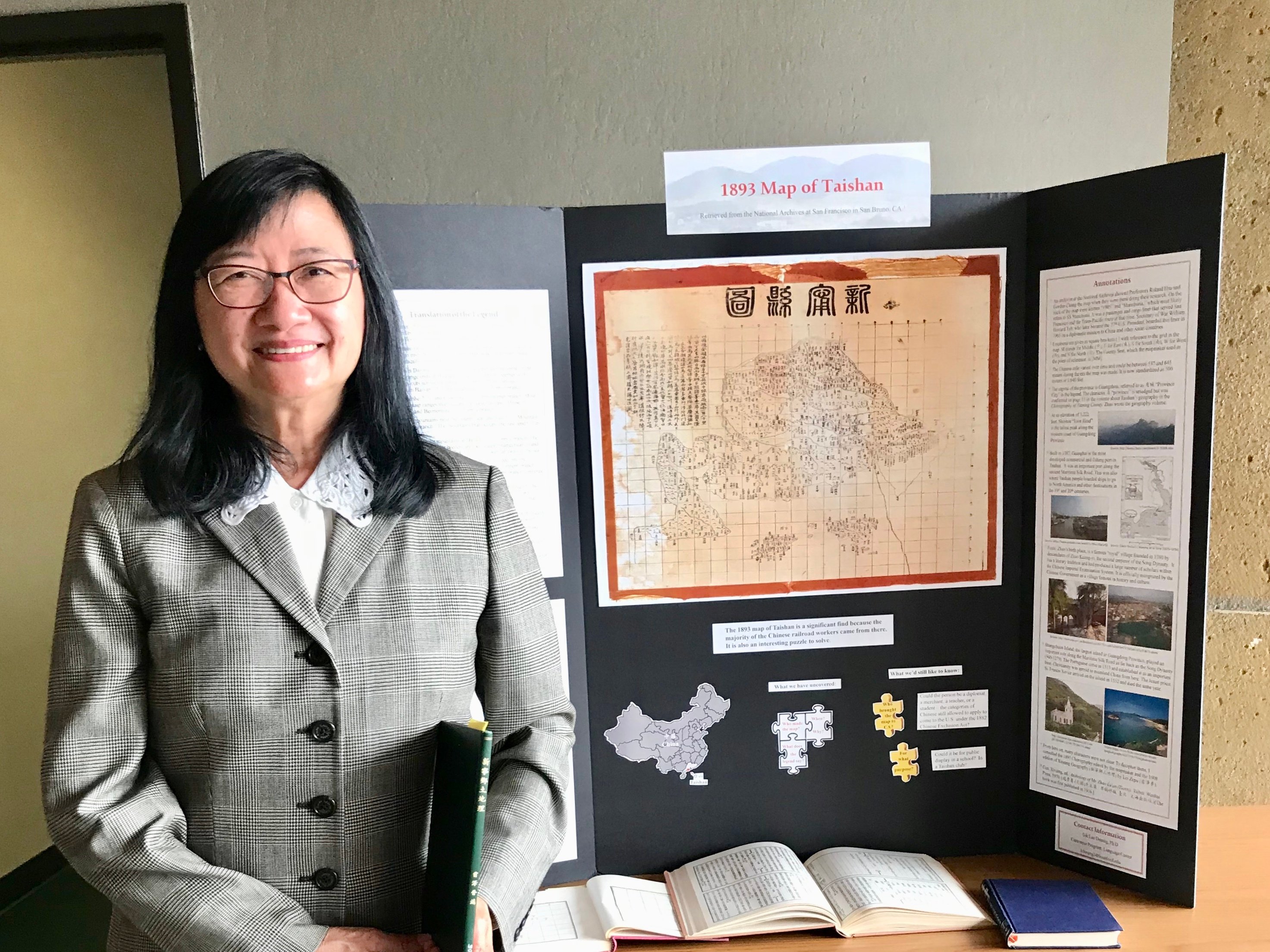Stanford will not renew the contract of its only Cantonese lecturer, creating uncertainty about the future of the Cantonese language program. Community members say the cut is a profound loss, especially in the context of the historical marginalization of Cantonese speakers by Stanford’s founder.
The University indicated in a statement to The Daily that some lecturers’ contracts will not be renewed to lessen the impact of budget shortfalls, though it declined to comment on the scale of lecturer layoffs. In July, the University announced it would lay off 208 workers and furlough 30 more in light of the University’s serious budgetary challenges. And last month, Stanford’s budget for the 2020-21 fiscal year included approximately $100 million in budget cuts to general funds.
Sik Lee Dennig Ph.D. ’92, the founding lecturer of the Cantonese program, has taught Cantonese at Stanford for over 21 years. Dennig said she was told the University “hopes” to offer one Cantonese class in fall 2021. The University raised the possibility that Dennig could return on an hourly basis if there are funds available, according to an email obtained by The Daily.
School of Humanities and Sciences spokesperson Joy Leighton told The Daily that “No language programs have been canceled, including Cantonese, and courses will be offered in response to student demands.” Approximately 76 students enroll in Cantonese classes every year, with an average class size of 31 students in fall quarter over the past 10 years, according to Dennig.
The Language Center has mitigated the impacts of summer budgetary cuts by leaving positions that open due to retirement unfilled, and in a few cases, not renewing lecturer contracts, according to Leighton. She declined to comment on the criteria used to determine how different language programs would be affected by the budget cuts.
Leighton added that the University extended the contracts of all lecturers working when the pandemic hit through the 2020-21 academic year so that “anyone whose contract was not renewed could search for jobs on the academic market.”
Students who have taken Cantonese courses said they were disappointed and hurt to learn the future of the program is in flux. “It was quite upsetting,” said Ashley Phord-Toy ’22, adding that practicing Cantonese on campus helped her better connect with her grandparents who speak Cantonese.
Just as Stanford offers a wide selection of minority languages such as Afrikaans and Yiddish, Phord-Toy said Cantonese should continue to be offered for future students. “Cantonese has value just as similarly as how other minority languages have value,” she added.
Caroline Ho ’19, a Cantonese heritage speaker who took several of Dennig’s courses, lamented the news: “I was super disappointed to hear. It was like a bucket of cold water to the face,” Ho said. “Cantonese is a whole language that deserves to be undertaken and learned on its own.”
Although Dennig grew up in Hong Kong, her heritage language was Shanghainese and she felt welcomed and connected to relatives when visiting them in Shanghai. “I fully understand how my students feel about their heritage language — Cantonese,” she said. “The ability to speak it gives them a membership to their community.”
While Stanford’s Cantonese program has been limited to conversational courses, peer universities have expanded their Cantonese course offerings in recent years. Brigham Young University, Columbia University and New York University provide one year of introductory courses. And this fall, the University of California, Berkeley, added new elementary and intermediate Cantonese courses.
But at Stanford, expansion of the Cantonese program has required student activism. Months of student petition preceded the Language Center first offering Cantonese in 1997, and on the first day, over 20 students enrolled, exceeding the center’s expectations, Dennig said. In fall of 2006, a 15-unit, one-year Cantonese sequence was introduced for the first and only time after students petitioned for its creation. The sequence was later canceled due to funding concerns.
With the exception of the 2006-07 academic year, the Cantonese program has only offered conversational and film courses, which do not satisfy the University’s language requirement. And between 2013 and 2017, the Language Center did not allow students to fulfill the foreign language requirement by taking a Cantonese placement test.
“My colleagues at the Language Center are wonderful,” Dennig said, “but I think there is a lack of understanding of Cantonese as a regional language in China and the historical role that the language has played in Chinese communities throughout North America.”
Leland Stanford and Chinese laborers
Dennig and students said the historical significance of Cantonese Americans since the founding of Stanford should be fully recognized by supporting a full-time Cantonese program on campus.
During the 1860s, University founder Leland Stanford amassed a fortune by constructing the western portion of the Transcontinental Railroad, which employed thousands of Chinese workers, a majority of whom spoke Cantonese.
Leland Stanford was responsible for the exploitation and maltreatment of the Chinese workers in his employment, the University acknowledged in an event hosted last year by Stanford’s Chinese Railroad Workers in North America Project and in its diversity and inclusion statement.
“A rhetorical question circulates among Chinese Americans: Do you know why the tiles of the roofs of Stanford University are colored red?” wrote Senior Associate Vice Provost for Undergraduate Education Gordon Chang in a 2019 article. “The answer: Because they are stained with the blood of Chinese railroad workers who died while constructing the transcontinental railroad for Leland Stanford.”
Ho said Stanford’s proximity to Cantonese-American history necessitates a Cantonese program: “If this program is erased, I’m worried that we are going to forget about Cantonese heritage,” she said.
Stanford has a “moral obligation to figure out how to put their words into action,” Dennig said.
Update: This article has been updated to include information from an email informing Dennig that future Cantonese course offerings will be determined by available funds.
Contact Cameron Ehsan at cehsan ‘at’ stanford.edu and Tom Quach at tomquach ‘at’ stanford.edu.
